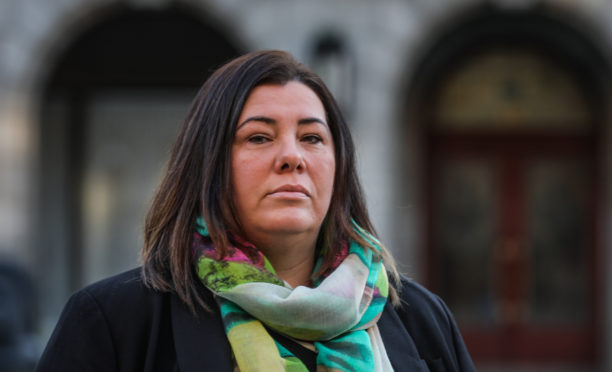Care staff looking after some of Dundee’s most vulnerable residents have been told they will not be forced to work “horror show” shift patterns which would have slashed wages by up to £4,500.
Dundee City Council and the Dundee Health and Social Care Partnership have written to home care staff advising of “significant progress” in a review of home care services.
Staff voted last month to reject plans which would mean workers on single-shift options would have their working hours reduced to 23, 14 or 12 per week, leaving those who want to avoid split shifts facing significant wage cuts.
The letter to workers, from chief officer David Lynch, confirms new shifts brought in “due to developments in the service” will now allow employees to remain on their existing work patterns.
They will not be asked to move to a split-shift system unless they have requested this change themselves.
However, GMB Scotland organiser Helen Meldrum said members still had no guarantees they will not be forced to “change hours of work or accept a huge pay cut”.
She confirmed the union will carry on with plans for a ballot on industrial action until leaders have secured an urgent meeting with council bosses and been presented with full details of the new shift plans.
She said: “As things stand, there is still no clarity around the hours of work for our members or the huge pay cuts which were part of the proposals to slash the terms and conditions of our members.
“There is no mistaking this action comes as a result of our formal notice to ballot, which was submitted on Friday. I understand Unison has put theirs in this morning.
“We have always sought a positive outcome on this but nothing changes until we get clarity on the details.”
A spokesman for Dundee Health and Social Care Partnership said a review of services had looked to strike a balance between the expectations of the workforce and the needs of service users, now and in the future.
He said: “There has been progress on the remodelling of pathways to support people being discharged from hospital, along with remodelling around primary care and community services, and the development of integrated roles.
“Feedback from our workforce has been carefully considered and we have assessed the impact that people joining and leaving the service over the last year has had on delivery models.
“This all means that we can work with a range of shift patterns as we move towards future models of delivery.”
The spokesman said it is hoped the announcement will end “a period of uncertainty” and pledged work will continue to engage with employees and trade union representatives going forward.










